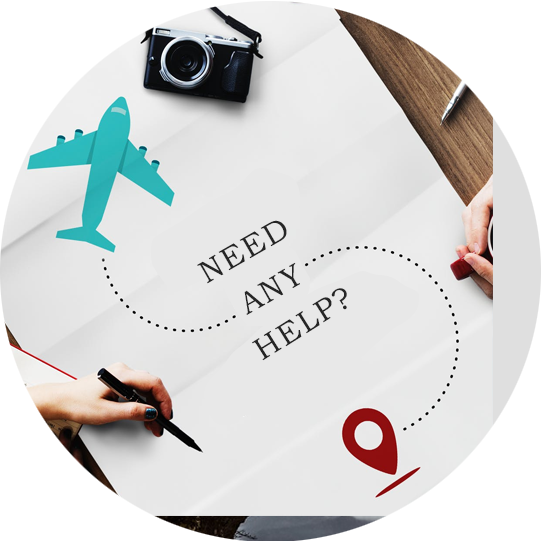
Travelling After a Stroke: Guidelines for a Safe Journey
Heart and Stroke Canada reports over 400,000 Canadians living with stroke effects. Stroke patients describe varied challenges based on age, stroke severity, affected brain area, pre-stroke fitness, and other factors. At ClearCompare.ca, we acknowledge diverse patient needs, providing valuable guidance for post-stroke travel. This article delivers crucial information, precautions, and insights for safe travel after a stroke.
Understanding Stroke
A stroke occurs when blood flow to a brain section is blocked, causing cell death. Two main stroke types exist: Ischemic Stroke, where a blood clot stops brain blood flow, and Transient Ischemic Attack (TIA), a precursor to severe strokes involving a smaller clot briefly blocking an artery. The other type is a hemorrhagic stroke, resulting from a ruptured blood vessel causing brain bleeding.
In both cases, urgent medical assistance is crucial to halt brain damage promptly. Recognizing signs quickly reduces brain damage and enhances recovery chances.
Can I Travel After a Stroke?
Post-stroke recovery challenges prompt many patients to question travel feasibility. Encouragingly, up to 80% of Canadian stroke survivors can expect survival, with many resuming pre-stroke life, including travel. Consultation with a physician for personalized advice and precautions based on individual medical conditions and recovery progress is crucial.
Flying After a Stroke
Airlines typically don’t demand disclosure of previous strokes. However, flying poses unique challenges for survivors, such as cabin pressure changes and limited in-flight healthcare access. Hence, physician clearance is essential before flight booking. Cleared patients, regaining mobility, can generally travel by plane again.
Precautions While Flying
If cleared for travel, take common-sense precautions before flying.
Ensure adequate rest and stay hydrated during the flight, minimizing stress.
Move around during the flight to reduce Deep Vein Thrombosis (DVT) risk. Reduced mobility from stroke heightens DVT risk, necessitating a seat with extra legroom and frequent leg movement.
Timing of Travel
A substantial second-stroke risk persists one month post the first stroke. Thus, medical clearance is vital before booking a flight. Physicians usually advise completing post-stroke therapies like physiotherapy, occupational therapy, and speech and language therapy before considering travel.
Consider Healthcare Options
While post-stroke travel is attractive, ensure top-tier healthcare is available at your destination for potential complications. As time passes post-stroke, complication risks diminish. However, during the initial years, opt for destinations with excellent healthcare facilities.
Is there any Travel Insurance that will cover my stroke risks?
Most travel insurance providers in Canada require a stability period of several months to a year. This means that if any of your medication dosage has changed, or if your medical status has changed, this can render you ineligible for travel insurance for that, or any related condition. For example, if you are put on a blood pressure medication after your stroke, you may be ineligible for coverage for anything related to your blood pressure (including a subsequent stroke) if there are any changes to your blood pressure medication during the stability period. Even if your dosage is going down because you are getting better.
ClearCompare.ca does provide travel insurance for Canadians who have experienced a stroke, without the need for medical stability periods. Clients can apply for travel insurance by disclosing their medical status and medical history, and in many instances, travel insurance can be offered, even with a history of stroke or mini-stroke. Due to the high cost of healthcare when travelling abroad, it is very important to ensure that your travel insurance will cover you for any emergency that may arise, including a complication from your prior stroke.
Request a Quotation
Where should I travel after I recover from my stroke?
While travel is an excellent option for stroke survivors, ensure that your travel destination offers quality healthcare facilities in case of any complications. As time passes between your stroke and travel date, the chances of complications decrease. However, for the first few years after a stroke, consider travelling to destinations with reliable healthcare.
As mentioned, the severity of strokes varies dramatically from patient to patient. Therefore it is important to discuss your limitations with your family and physician. If you require assistive devices such as a walker or a wheelchair, it is important to research the accessibility of your destination. Many developing countries or remote locations, for example, are not as accessible as an affluent city.
If you are experiencing any communication challenges due to apraxia or aphasia from your stroke, it may be best to travel to countries where they speak English, so that a language barrier is not added to the already existing challenges.
Medication
It may be difficult to fill your prescriptions while abroad so ensure that you have more than enough medication to take during your trip, plus some extra in the event of a delay. You should carry your medication with you on your flight just in case your luggage is delayed. You may require a doctor’s note should any of your medications be in liquid form or require needles to administer the medication.
Conclusion
Travelling after a stroke is possible with proper medical clearance, precautions, and planning. With the right guidance, stroke survivors can enjoy safe and fulfilling journeys. ClearCompare.ca is committed to providing comprehensive travel insurance coverage for stroke survivors, ensuring they can explore the world with confidence. Consult with your physician and explore our travel insurance options for a worry-free travel experience. Travel with peace of mind, knowing that your journey is protected by ClearCompare.ca.
Why choose Clear Compare

Compare plans and save
We do the hard work for you, so you can compare plans and premium rates to get a policy that meets your needs, at the best value.

Expert advice and service
Our experienced Clear Compare advisors are dedicated to looking after your best interests with expert, un-biased advice without fees or sales pressure.

Coverage that comes with confidence
One size doesn’t fit all when it comes to insurance. We’ll work with you to tailor a solution to suit your unique needs for confident protection when you need it most.






